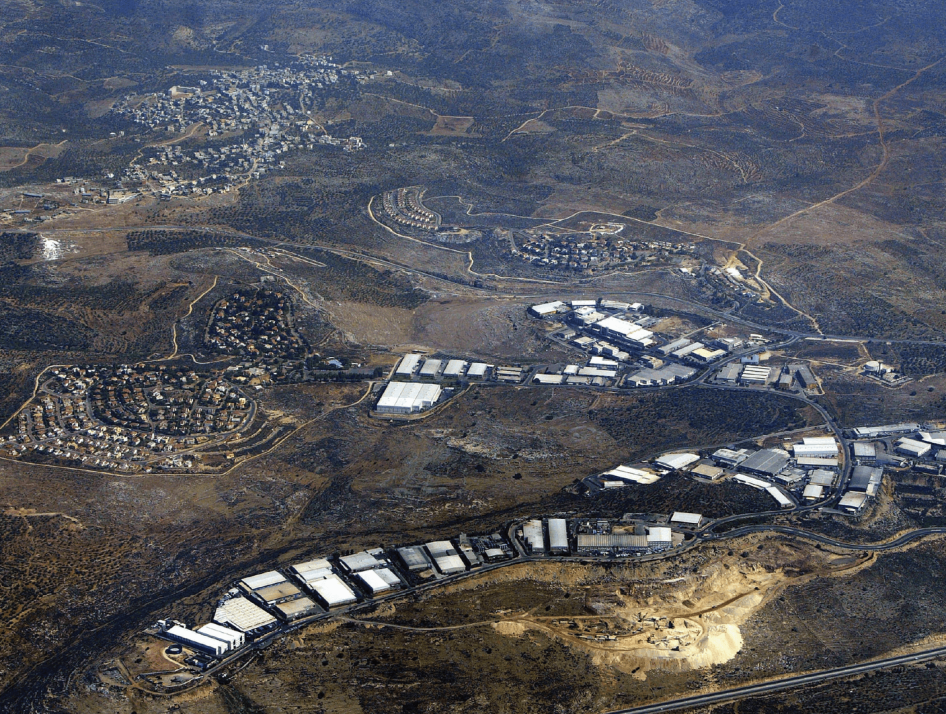The Israeli military illegally seizes land from Palestinians and then an Israeli bank finances the construction of an apartment complex on it in a West Bank settlement. The same bank financed at least 558 apartments or private houses in other settlements, as well as a commercial centre and park. They and other banks also offer mortgages to settlers.
Under international law, settlements are illegal, as is the military’s confiscation of West Bank land and other resources for its own civilians’ benefit. Since settlement businesses effectively contribute to these violations, they contribute to unlawful practices, contrary to their responsibilities under the UN Guiding Principles on Business and Human Rights.
Companies have learned the hard way that they ignore human rights at their peril. While sweatshops and protests come to mind when people think about businesses violating human rights, companies also need to pay attention to other kinds of rights violations, and this bank is a prime example.
Conducting business in occupied territory can turn business as usual into serious violations of international law. We have found that businesses operating in, servicing, financing, or trading with Israeli settlements cannot help but contribute to violations of these laws, because the violations are inherent to doing business there.
Some businesses involved in settlements are also implicated in the two-tiered system Israel imposes on the West Bank that discriminates against Palestinians while favoring settlers and settlement businesses. The Israeli government encourages settlements by offering many of the individuals and businesses that locate there a range of financial incentives, building permits and licenses to extract natural resources, while it severely restricts permits and licenses for Palestinians. That is completely contrary to international law.
In 2014, Israel issued only a single building permit to a Palestinian in the 60 percent of the West Bank under its administrative control. It has not issued any new quarry licenses there to a Palestinian since 1994, while 11 Israeli-administered quarries in the West Bank contribute around one-quarter of Israel’s stone market. The World Bank estimated in 2013 that Israeli restrictions on Palestinians in this area cost the Palestinian economy $3.4 billion annually – equal to roughly one-third of Palestine’s GDP.
Numerous European states, including the United Kingdom, Germany and France, have issued business advisories discouraging settlement-related business activity. Companies would be wise to take this advice. Earlier this month, the French telecom giant Orange reportedly paid a total of 90 million euro to end its licensing agreement with an Israeli company eight months after a high-profile report publicized that the company operates service towers in settlements.
Under the UN Guiding Principles, a company would not need to end their relationship with another company involved in settlement-related activity, but it would need to conduct due diligence to ensure that its own supply chain is not tainted by such activity and the attendant abuses.
That poses special problems for the financial sector in particular. How does a bank lending money to an Israeli bank ensure that its loan is not being used to finance settlement construction or to provide mortgages for settlers? “Walling off” loans may be a pointless exercise when money is fungible.
The UN Guiding Principles offer one possible answer. They direct companies to use any leverage they have in their business relationships to prevent or mitigate adverse human rights impacts of their activities. In that case, international banks should use their leverage to push Israeli banks to get out of the business of financing settlements altogether.
The bottom line is that no business should be operating on and profiting from land and resources illegally taken from the Palestinian people or facilitating illegal settlements. Cutting commercial ties to settlements is not only the right thing to do, it’s also smart business.









